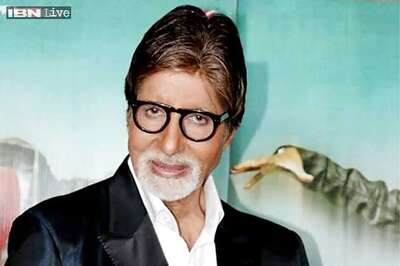
views
Indians have long been mesmerised by the West’s spirit of innovation, often at the expense of indigenous technologies and the spirit of ‘jugaad’. This admiration, while partly an acknowledgement of real achievements, is also deeply rooted in our colonial past, which urges us to follow rather than lead. It is only in the last decade, under Prime Minister Modi’s leadership, that a noticeable shift has occurred both technologically and societally, suggesting that India might be beginning to take the lead.
Modi 1.0 and 2.0 saw efforts like ‘Digital India’ and ‘Smart Cities Mission’ creating digitally empowered citizens working on sustainable and inclusive growth. At the same time, continued economic liberalisation and promotion of entrepreneurship have resulted in several thousands of startups like AgroHub, Saankhya Labs, and Razorpay across multiple sectors, with 118 of them achieving unicorn status in that period. As these developments were happening, it would have been hard to encapsulate the underlying ideology succinctly. However, the term ‘e/acc’, coined in mid-2022, encapsulates almost all aspects of what has been happening over the last decade.
Effective Accelerationism, or e/acc, is an ideology advocating the continuous acceleration of technological progress at any cost, viewing it as the only great social equaliser. It emerged from the simple observation that technologies like synthetic biology and artificial intelligence (AI) are undergoing exponential growth. Resistance to this growth is ultimately futile within a free, democratic and capitalistic society, leading to the conclusion that acceleration is the only viable option. While the ideology is well-received in Silicon Valley, with vocal support from leaders like Marc Andreessen, emerging regulations and irrational fear-mongering by Western media stand in the way of its mainstream acceptance.
As the West languishes, India has a unique opportunity to embrace the e/acc ideology and create a society that fully adopts its tenets. As we approach the next general election, which is likely to mark the beginning of Modi 3.0, this author hopes that PM Modi will proactively champion e/acc in a manner unprecedented among world leaders. In recent months, PM Modi has frequently highlighted the pivotal role of AI in India’s future, indicating a strong inclination towards integrating AI and adjacent technologies in the upcoming government agenda. However, embracing e/acc requires more than just a focus on AI; it necessitates broader, deeper, commitments to ensure India leads the rapidly evolving global technology landscape.
Modi 3.0 government should first reaffirm its commitment to the digitisation of India, AI, renewable energy, and automation through continued funding as well as providing incentives for startups. If there is a critique to offer, it lies primarily in the minimum quantity of funding provided. To stay committed to e/acc, the funding per project needs to be raised by at least an order of magnitude, alongside a similar increase in the total funding available. The regulatory processes need to be further streamlined to encourage risk-taking and entrepreneurship.
The government should actively be adopting new AI tools and digitising services on all fronts while actively encouraging the development of autonomous AI agents and humanoid robots. A pro-e/acc government should commit to never banning any open-source tools and work on reducing restrictions on the use of copyrighted materials for model training purposes, as well as re-evaluating patent laws to ensure the removal of unnecessary hindrances to technological progress.
If India were to take such an unapologetically e/acc position, within a short 5-7 year period, every aspect of Indian society would be transformed the same way UPI transformed payments in India.
Let’s, for example, envision this in three sectors.
In agriculture, we could realistically see the development of ‘smart farms’ where AI-powered sensors detect pests and weeds, low-cost automation tackles all aspects of maintaining the plants, and predictive analytics enable precision farming. In healthcare, we could have a basic, free, AI-based telemedical service within the Ayushman Bharat Digital Mission (ABDM) or Unified Health Interface (UHI) to provide primary healthcare for any Indian citizen. Finally, a free AI-assisted primary education program to provide students with personalised learning experiences, instant feedback, and adaptive learning materials to their level of understanding, all in any language of their choice. It could also predict areas where they might struggle in the future, thereby fundamentally reshaping education in India.
The ideology of e/acc, while presenting immense opportunities, also brings with it challenges such as deepfakes, misinformation, and several other ethical dilemmas like autonomous weapons. However, addressing these challenges shouldn’t involve slowing down but rather mindfully leaning into the curve, to borrow from driving parlance. Moreover, the societal impacts, especially potential job displacements due to rapid automation, require proactive measures.
Here, India’s experiments in Universal Basic Income (UBI), like the Mukhya Mantri Ladli Behna Yojana in Madhya Pradesh, offer a pertinent example. Such measures are likely going to be instrumental in mitigating economic disruptions caused by technological progress and ensuring a more inclusive approach to the societal shifts anticipated with e/acc. Additionally, focusing on sectors like manufacturing and deep tech will open new employment avenues to absorb the individuals who might have lost their employment to automation and AI.
As we look forward to Modi 3.0, the hope is for an unequivocal embrace of e/acc, positioning India not just as a leader in technological innovation but also as a pioneer in addressing its far-reaching societal implications.
(Ashwin Gopinath is an esteemed MIT professor with diverse expertise in AI, synthetic biology and applied physics, with previous roles at Google and Caltech. He is a recipient of several awards and a prolific author in peer-reviewed publications, along with being an accomplished entrepreneur. Views expressed in the above piece are personal and solely that of the author. They do not necessarily reflect News18’s views)




















Comments
0 comment